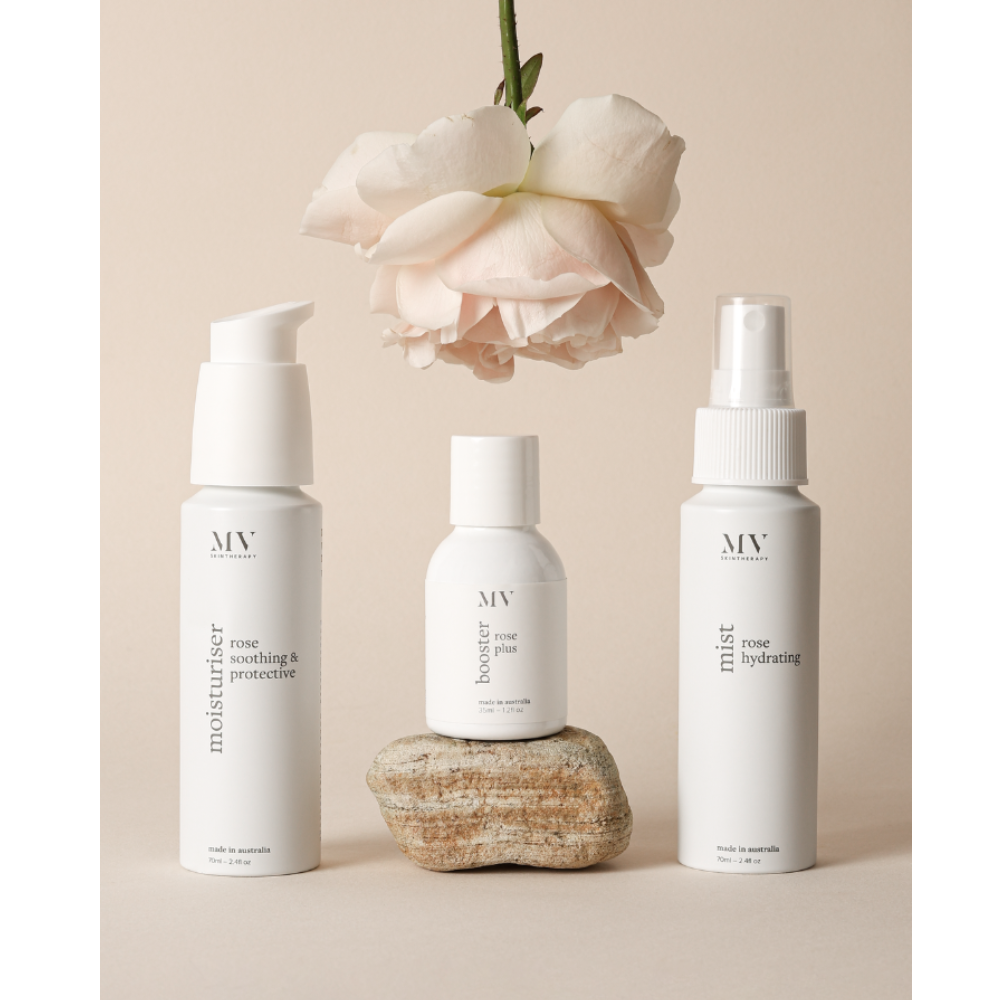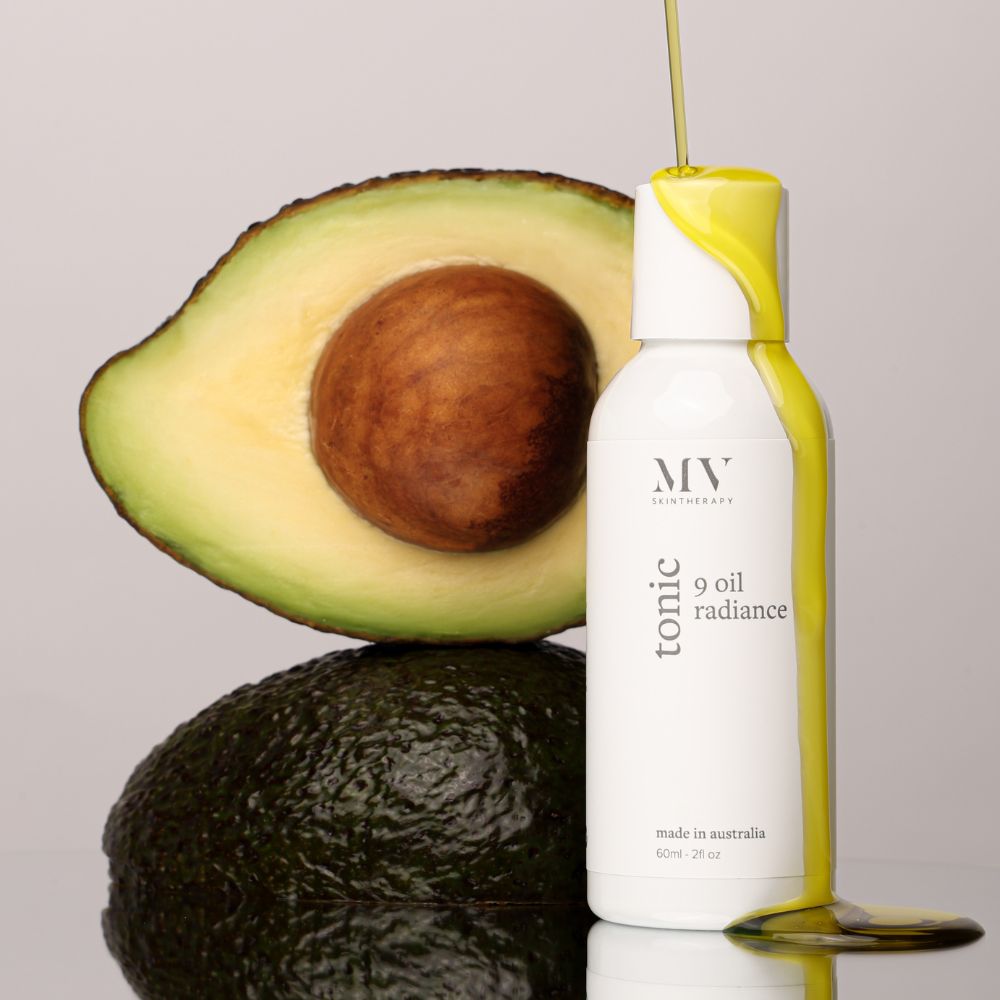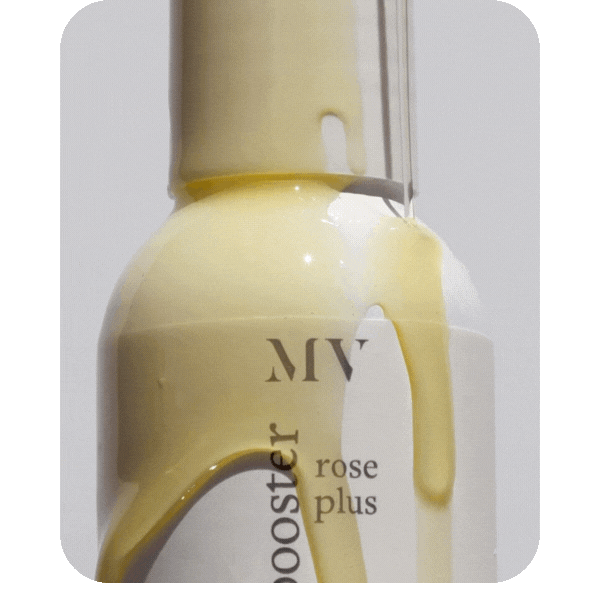Understanding PCOS
A Holistic Overview

What Is PCOS?
Polycystic Ovary Syndrome (PCOS) is an endocrine disorder that affects up to 1 in 10 women of reproductive age. It’s characterised by hormonal imbalances, particularly higher levels of androgens (male-type hormones such as testosterone), irregular or absent ovulation, and insulin resistance.
Although named for ‘polycystic ovaries’, PCOS is not defined by cysts alone. It is a systemic condition, and its impact can be felt in energy, mood, metabolism, fertility - and most noticeably, skin health.
Did You Know?
PCOS affects around 8–13% of women globally, making it one of the most common hormonal conditions. Yet despite its prevalence, it is still often misunderstood or misdiagnosed.
Skin Symptoms Of PCOS
The skin manifestations of PCOS are driven by hormonal imbalance and inflammation.
Common concerns include:
- Hormonal Acne (often cystic and located around the chin and jawline)
- Excess oil production (leading to clogged pores and persistent congestion)
- Post-inflammatory pigmentation and scarring (after breakouts heal)
- Increased sensitivity and inflammation (flare-ups and slower healing)
- Dryness or barrier impairment (especially from harsh conventional treatments)
PCOS-related skin changes can appear anywhere on the body
but they most commonly affect areas sensitive to androgen activity, such as the face, chest, upper back, lower abdomen, and around the jawline. Darkened patches of skin (acanthosis nigricans) can appear on the neck, under the breasts, or in skin folds. Hair thinning or excess hair growth may also be seen on the scalp, face, or body, depending on individual hormonal patterns.
Systemic Symptoms Of PCOS
Polycystic Ovary Syndrome (PCOS) is fundamentally an endocrine condition, meaning it affects the hormonal balance of the body. Because hormones regulate so many systems, the symptoms of PCOS can appear across multiple body systems, not just the skin. Each person’s experience is unique, but there are common patterns that can help identify the condition. These include reproductive changes, metabolic shifts, and emotional or mental health impacts. Understanding the broader picture of PCOS can support more effective, individualized management strategies.
Common systemic symptoms include:
・Irregular or absent menstrual cycles
・Painful or heavy periods
・Infertility or difficulty conceiving
・Weight fluctuations or difficulty losing weight
・Insulin resistance or blood sugar imbalances
・Fatigue or low energy
・Mood changes, anxiety, or depression
How Is PCOS Diagnosed?
Polycystic Ovary Syndrome (PCOS) is currently diagnosed using the Rotterdam criteria, which is the standard framework used by clinicians. A diagnosis is made when two out of the following three features are present:
- Irregular or absent menstrual cycles – showing that ovulation is not occurring regularly.
- Signs of hyperandrogenism – such as acne, excess facial or body hair, or thinning scalp hair, reflecting elevated male hormones.
- Polycystic ovaries on ultrasound – ovaries may appear enlarged or contain multiple small follicles (cysts). Cysts alone are not sufficient for diagnosis.
Because PCOS can present uniquely in each person, diagnosis also involves looking at the broader hormonal and metabolic picture. This ensures that assessment captures the full range of symptoms and underlying imbalances, allowing for a more individualised and effective approach to management.
Conventional Treatments For PCOS
Conventional management often focuses on suppressing symptoms rather than addressing root causes. Typical options include:
- Oral contraceptive pill (to regulate hormones)
- Metformin (to address insulin resistance)
- Spironolactone or other anti-androgen medications (to reduce breakouts)
- Topical retinoids or antibiotics (for acne management)
These treatments can be helpful for some, but many women find them too harsh, short-term, or unsustainable. They can also further disrupt the skin barrier, causing dryness, flakiness, or sensitivity.
Conventional treatments can be helpful for managing symptoms, but they often focus on suppression rather than supporting the body’s natural balance. Many women seek gentler, long-term strategies that work with their hormones, metabolism, and skin health rather than against them. Exploring the underlying drivers of PCOS and adopting holistic lifestyle, skincare, and wellness practices can empower you to manage symptoms more sustainably - and support overall wellbeing.
PCOS: Causes & Holistic Insights
Take a deep dive into the root drivers of PCOS and explore natural, lifestyle-based strategies to support overall hormonal and skin health.
The PCOS Skin Program
Explore our PCOS Collection, designed to support sensitive skin by calming inflammation, restoring balance, and bringing harmony back to your complexion.
6 Top Tips For PCOS
MV Founder and Sensitive Skin Expert, Sharon McGlinchey, shares the tips she wants everyone with PCOS to learn.
The PCOS Heroes
Frequently asked questions
PCOS affects around 8–13% of women globally, making it one of the most common hormonal conditions. Yet despite its prevalence, it is still often misunderstood or misdiagnosed.
Skin symptoms are sometimes dismissed as “just acne,” yet for many women with PCOS, their skin is one of the most distressing aspects of the condition. Addressing these symptoms holistically requires understanding not only what is happening on the surface, but also the internal imbalances driving them.
PCOS itself is a chronic condition, but skin symptoms can absolutely be managed and improved. The goal is not a “quick fix” but rather creating an environment where the skin barrier is supported, inflammation is reduced, and the microbiome is nurtured. With this approach, the skin can return to a calmer, more balanced state - even if flare-ups arise from time to time.
Managing PCOS effectively involves supporting both hormonal balance and skin health. Holistic strategies include maintaining a balanced diet, regular movement, stress reduction, and ensuring adequate sleep. Supporting the skin is also important, as hormonal fluctuations can trigger breakouts and sensitivity.
Using gentle, microbiome-friendly skincare can help calm inflammation, restore the skin barrier, and reduce irritation. Our PCOS Skincare Collection is specifically formulated for hormone-sensitive complexions, helping to soothe, protect, and maintain healthy, balanced skin as part of your overall PCOS wellness routine.






















